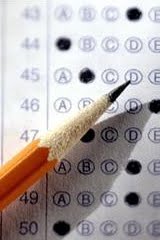Bernie Sanders: America must end high-stakes testing, finally invest in public education
Across the country, teachers, parents and students are pushing back against an ineffective and punitive standardized tests regime. I stand with them.
Wednesday marks 18 years since the signing into law of No Child Left Behind, one of the worst pieces of legislation in our nation’s history. In December 2001, I voted against NCLB because it was as clear to me then, as it is now, that so-called school choice and high-stakes standardized testing would not improve our schools or enhance our children’s ability to learn. We do not need an education system in which kids are simply taught to take tests. We need a system in which kids learn and grow in a holistic manner.
Under NCLB, standardized tests were utilized to hold public schools and teachers “accountable” for student outcomes. As a result, some schools that underperformed were closed and their teachers and unions blamed.
The long-term effects of this approach have been disastrous. NCLB perpetuated the myth of public schools and teachers as failing, which opened the door for the spread of school voucher programs and charter schools that we have today. Some of these charter schools are operated by for-profits; many of them are nonunion and are not publicly accountable.
NCLB also undermined the profession of teaching and hurt our students. Now, educators are routinely forced to teach to the test rather than encouraged to draw on their expertise. Students spend hours each year taking tests, and that doesn't include the hours it takes to prepare for them. This burden of testing has CONTINUE READING: Bernie Sanders: Standardized tests have failed America's students


















